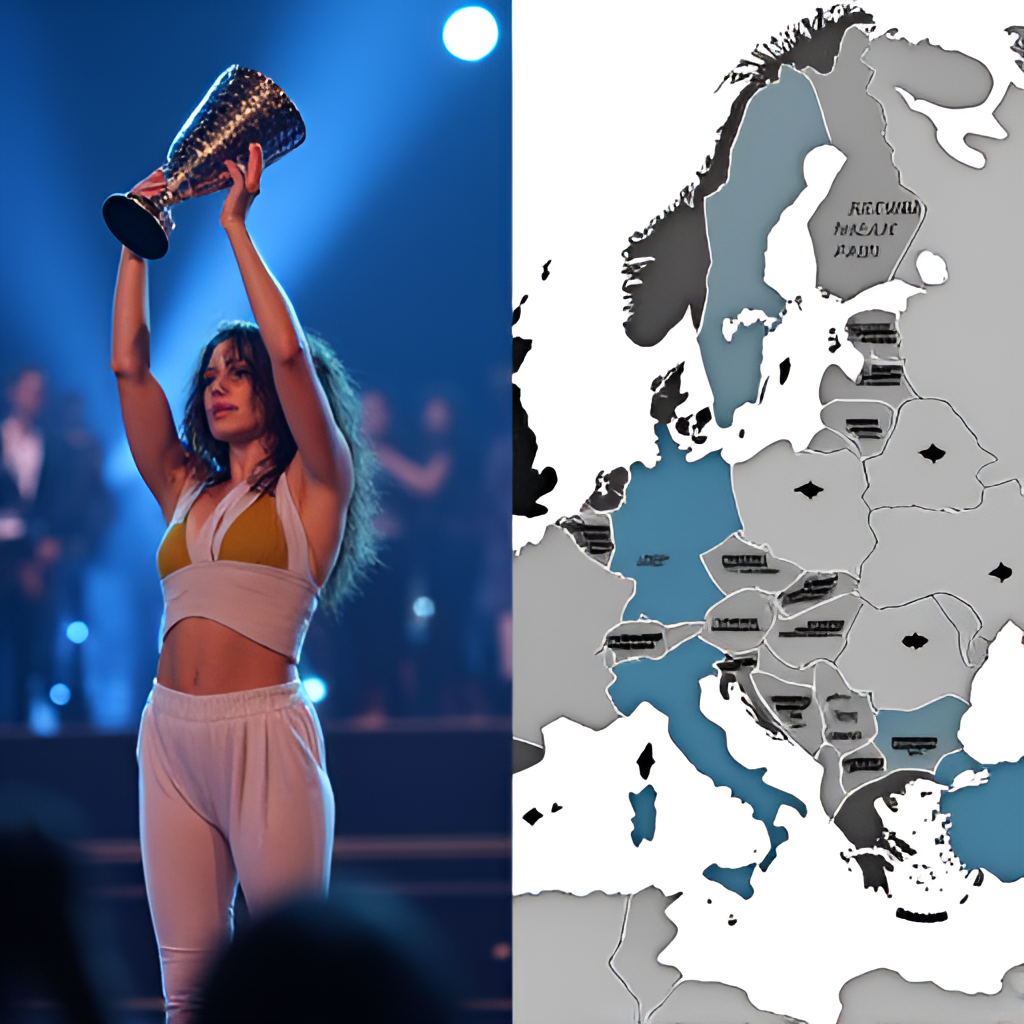Eurovision Song Contest Results: More Than Just Scores
- Introduction: Diving into Eurovision Song Contest Results
- Understanding the Eurovision Voting System
- Iconic Moments and Memorable Eurovision Winners
- Ireland and Sweden: The Eurovision Powerhouses
- Beyond the Trophy: The Impact of Winning Eurovision
- Recent Eurovision Song Contest Results
- Eurovision Song Contest Results: A Reflection of Culture and More
The Eurovision Song Contest results are often the culmination of a week filled with vibrant performances, diverse musical styles, and a healthy dose of geopolitical intrigue. As someone who eagerly anticipates this annual spectacle, I find myself captivated not just by the music, but by how the votes unfold and what they reveal about connections across Europe and beyond. It’s a fascinating snapshot of cultural exchange, sometimes predictable, sometimes wildly surprising. In this article, we’re going to delve into the world of Eurovision Song Contest results, looking at how they’re determined, some unforgettable past outcomes, and what it all means.
Understanding the Eurovision Voting System
If you’re new to Eurovision, the voting can seem a bit complex, but trust me, it’s part of the fun! The outcome of the Eurovision Song Contest is determined by a combination of professional juries and public televoting from each participating country, with each contributing 50% to the final result. In the Semi-Finals, typically only televoting is used, while the Grand Final incorporates both. Each country awards two sets of points (1, 2, 3, 4, 5, 6, 7, 8, 10, and 12) to their favourite songs, excluding their own entry.
The jury in each country consists of five music industry professionals who judge based on criteria like composition and originality, quality of the performance, vocal capacity, and overall impression. These judges pledge to evaluate entries independently and must meet strict criteria regarding professional background, gender, and age diversity. My personal take? While the jury system aims for musical merit, there’s always chatter about whether national biases creep in, despite the rules. It’s a debate as old as the contest itself!
Televoting allows viewers at home to cast their votes via telephone, SMS, or the official app, with a limit of up to 20 votes per person. Importantly, you can’t vote for your own country. The points from the televote are then compiled for all countries and announced after the jury points have been revealed, often leading to dramatic shifts in the leaderboard. This dual system, balancing expert opinion with popular appeal, ensures the Eurovision Song Contest results are a true reflection of both critical and public reception. Since 2024, viewers watching around the world from non-participating countries can also vote online, with their votes aggregated to have the weight of one participating country.
Iconic Moments and Memorable Eurovision Winners
Looking back at past Eurovision Song Contest results, certain winners stand out not just for their victory, but for their lasting impact on the music world and pop culture. Who could forget ABBA’s win for Sweden in 1974 with “Waterloo”? It wasn’t just a Eurovision moment; it was the launchpad for one of the biggest bands in history. Similarly, Céline Dion’s victory for Switzerland in 1988 with “Ne partez pas sans moi” predates her global superstardom, showcasing the contest’s ability to spot burgeoning talent.
Then there are the winners who brought something truly unique to the stage. Lordi, the Finnish monster rockers, shocked many by winning in 2006 with “Hard Rock Hallelujah,” proving that Eurovision isn’t just about pop ballads. Austria’s Conchita Wurst delivered a powerful message of inclusion with “Rise Like a Phoenix” in 2014, a performance that resonated far beyond the music hall. These memorable Eurovision results aren’t just about the points; they’re about the stories, the performances, and the cultural statements they make.

This image is a fictional image generated by GlobalTrendHub.
It’s fascinating to see how a win can catapult an artist into the global spotlight. Måneskin, the Italian rock band who won in 2021, gained significant worldwide popularity after their victory with “Zitti e buoni.” And Duncan Laurence’s “Arcade,” the 2019 winner for the Netherlands, became a global streaming hit long after the contest. These examples highlight the evolving influence of Eurovision beyond its traditional European audience.
Ireland and Sweden: The Eurovision Powerhouses
When you talk about Eurovision Song Contest results history, you absolutely have to mention Ireland and Sweden. These two nations hold the record for the most wins, with seven victories each. For Ireland, the 1990s were a golden era, with wins including Eimear Quinn’s “The Voice” in 1996 and Paul Harrington and Charlie McGettigan’s “Rock ‘n’ Roll Kids” in 1994. And, of course, the legendary Johnny Logan remains the only person to have won the contest three times – twice as a performer (1980, 1987) and once as a songwriter (1992).
Sweden’s success is more spread out, from ABBA’s iconic 1974 win to Loreen’s dual triumphs with “Euphoria” in 2012 and “Tattoo” in 2023. Their consistent performance and knack for producing catchy, well-staged pop songs have made them a force to be reckoned with year after year. It makes you wonder what secret ingredient they have! Perhaps it’s their national selection show, Melodifestivalen, which is a massive event in itself and consistently produces high-quality entries.
Beyond the Trophy: The Impact of Winning Eurovision
Winning the Eurovision Song Contest isn’t just about bragging rights and a rather fragile glass trophy. There can be tangible benefits for the winning country and artist. For the host country, which is traditionally the winner from the previous year, there’s a significant boost in tourism and international exposure. A study by the University of Tennessee suggests that winning and hosting Eurovision can increase tourism receipts by 8% over three years.
Beyond the economic, there’s the soft power aspect. Hosting Eurovision is an opportunity to showcase culture, promote tourism, and even enhance a country’s international image. For artists, a win can mean global recognition and a launching pad for their careers, as seen with ABBA, Céline Dion, and Måneskin.

This image is a fictional image generated by GlobalTrendHub.
Interestingly, while the “Big Five” countries (France, Germany, Italy, Spain, and the UK) automatically qualify for the final due to their financial contributions, this hasn’t necessarily translated into more wins in recent years. It seems the democratic nature of the voting, particularly the televote, can often favour entries from smaller nations or those with strong diaspora support. It adds an unpredictable and exciting element to the Eurovision Song Contest results!
Recent Eurovision Song Contest Results
Let’s look at some recent Eurovision Song Contest results. The 2025 contest, held in Basel, Switzerland, saw Austria take the crown with JJ’s song “Wasted Love.” This marked Austria’s third victory in the contest’s history. Israel came in second place, with Estonia securing third. The voting, as always, provided a mix of jury and public preferences, leading to the final leaderboard.
These recent results continue to demonstrate the diverse range of musical styles and performances that resonate with both juries and the public. From powerful ballads to energetic pop anthems and unique artistic expressions, Eurovision celebrates it all. Keeping up with the latest Eurovision Song Contest results is a must for any fan of the show.
Eurovision Song Contest Results: A Reflection of Culture and More
In conclusion, the Eurovision Song Contest results are far more than just a list of scores; they represent a fascinating intersection of music, culture, and national identity. From the intricate voting system that blends professional judgment with public passion to the unforgettable performances that launch global careers, Eurovision offers a unique spectacle. As someone who has followed the contest for years, I’ve seen firsthand how the Eurovision Song Contest results can spark conversations, reveal trends, and even, in their own way, reflect the prevailing mood across the continent. It’s a show that continues to evolve, but at its heart, it remains a celebration of diversity and the power of music to connect us all.